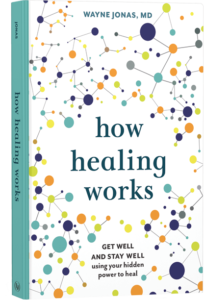This summer, we partnered with Harris Polls to discover whether the COVID-19 pandemic affected the use of supplements or over-the-counter vitamins in this country. To this end, we surveyed 2,053 adults above the age of 18.
The results were astounding.
Supplement use in this country is up 29% with an estimated 76% of Americans now taking at least one supplement a day. We found this increase especially prevalent among men aged 35 – 44, Hispanics, and parents with children under the age of 18.
The truth is that supplements can be a crucial part of becoming and staying healthy.
The other truth is that even something intended to improve your health can have dangerous side effects, particularly if they interact poorly with another medication. It is important to be aware of the risks associated with supplements, especially if you’re on other prescription medication.
Why are we suddenly taking more supplements?
In recent decades, the medical community has embraced the use of supplements as part of a health routine—in fact, many supplements are recommended to address a common deficiency, such as Vitamin D, that is typically discovered during a routine check-up.
But the options have expanded. Today, patients can choose from a vast array of supplements, including nutritional powders, gummy vitamins, CBD products, etc.
For mental health, supplements can be used to complement cognitive-behavioral therapies and prescription medications. For example, I often recommend that patients with anxiety try Ginkgo Biloba or lavender supplements, or suggest folic acid and lavender for patients struggling with depression.
Our survey found that 41% of Americans are taking supplements—such as melatonin or aroma therapies—to help them sleep, while 57% do so to improve their overall health and immunity.
It is important to note that supplements are an essential part of an Integrative Health approach that considers and treats a whole person by combining conventional medicine with evidence-based complementary and alternative therapies, lifestyle, and self-care. While their usage should not be discouraged, you must have all the information needed for you and your provider to make an informed and safe decision on your future care.
Can supplements protect you from COVID-19?
Although 36% of Americans surveyed admitted to taking supplements to boost their resistance to COVID-19, it is important to stress that there are no supplements that can act as a substitute for getting vaccinated or wearing a mask.
That being said, there is some evidence to suggest that people with low Vitamin D and Zinc may be at greater risk for contracting the virus. Either way, both supplements can be used to enhance one’s natural immune system.
Always speak with your provider first.
Despite the fact that supplements are readily available over-the-counter or for purchase online, it is important to always consult your provider before introducing supplements into your health regimen.
We were most disturbed to discover that only 47% of the 76% of Americans taking supplements first discussed usage with their provider. The reasoning for this varies: 35% indicated that they did not think their provider would be interested and 32% did not feel their provider had sufficient knowledge of supplements. In addition, we heard that 87% of supplement takers are confident the supplements they are taking are safe for them.
The truth, however, is that although 52% of those surveyed believe that all supplements are FDA-approved, the majority are not. The FDA does not regulate the safety or effectiveness of supplements, and many aren’t identified as dangerous until people are negatively affected by them. Furthermore, we know there are many alternative therapies and supplements on the market that make extraneous claims about their effectiveness, but the science to support those claims isn’t there. For example, there are dietary supplements that claim to help you lose weight or even more dangerously, cure cancer.
The prevalence of misinformation is concerning for two immediate reasons. First, the number one concern is quality because supplements are not regulated before hitting the market, and not all of them do as the packaging suggests they will. The second is that supplements can have harmful interactions with prescription drugs.
Ideally, your provider would ask if you are using supplements. But, unfortunately, sometimes the responsibility falls on you to bring it up.
To discover more about how to use supplements safely, see this blog and then speak with your provider.

Take Your Health Into Your Own Hands
Drawing on 40 years of research and patient care, Dr. Wayne Jonas explains how 80 percent of healing occurs organically and how to activate the healing process.
